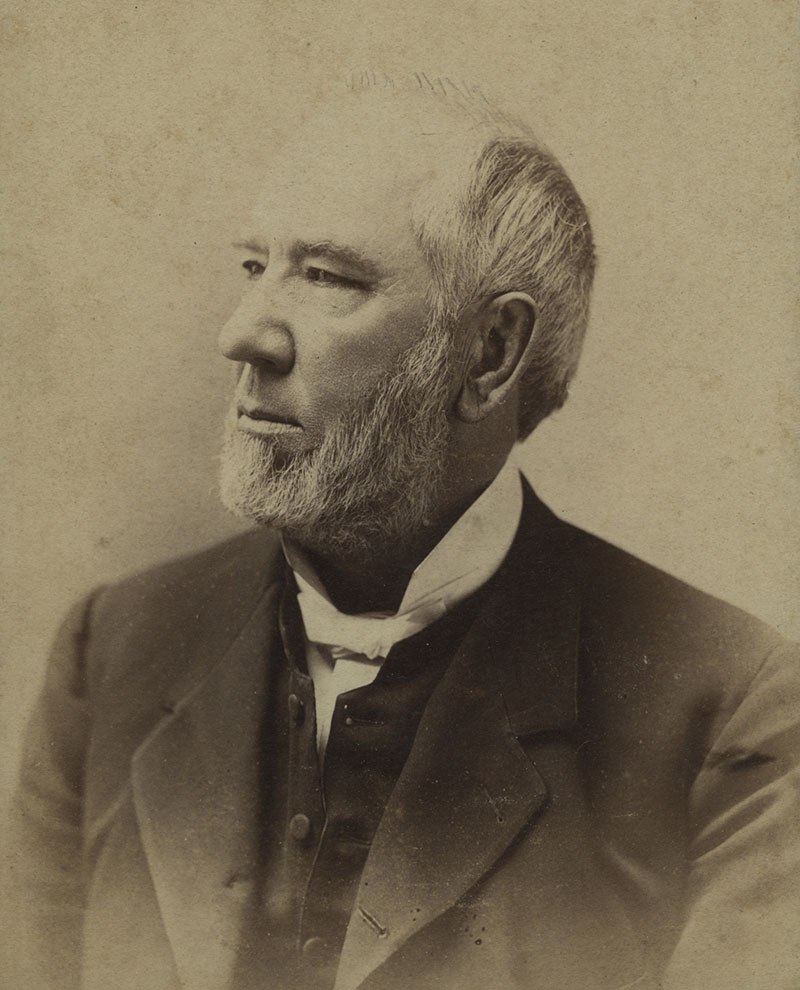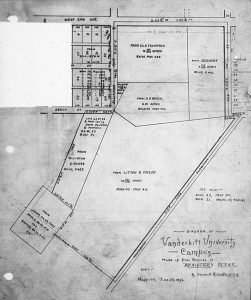A Change of Faith: Holland Nimmons McTyeire


Diagram of Vanderbilt University Campus. Walter G. Kirkpatrick. 1896. Map. E. E. Barthell Collection. Vanderbilt University Special Collections.
The story of Vanderbilt remains incomplete without Bishop Holland Nimmons McTyeire, here pictured between 1880-1889. If not for McTyeire, neither Wesley Hall, with Dudley and Fulton alongside it, nor Vanderbilt, would have existed. For McTyeire, Vanderbilt represented an extension of the Southern Methodist Church that could accomplish Cornelius Vanderbilt’s dedication to heal the divisions within American society following the Civil War.
To achieve this, McTyeire sought education for southern, white men to provide the South with a new binding social order–for better or worse. In this new Gilded Age structure, the antebellum agricultural system slowly morphed into a professionalized economy whereby landed wealth, poor and rich alike, gave way to a professionalized middle class. Even the university’s acquisition of land personified this western expansion where farms gave way to the city.
